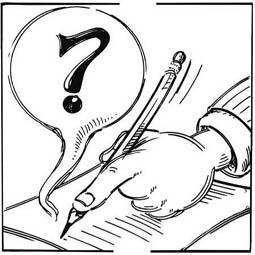Hiring Manager Explains Why Your Cover Letter Failed
Published: Mar 27, 2012

It's really frustrating applying to jobs on the internet. You spend a lot of time poring over your cover letter, reworking your resume, Googling the right person to address your application to (and making sure you've got their name right), and then waiting days, weeks, and even months for a response that often never comes.
That's why we have really mixed feelings about the 3,000-word "advice" email that one company sent its 900+ rejected job applicants.
Openly acknowledging that they've already picked the 50 or so candidates who made the second round of the hiring process, the company nonetheless sent a long letter of "helpful" tips to everyone who applied.
Framed as a point-by-point list of 'should'ves,' the email comes across more as a venting session of a fatigued hiring manager than an honest act of goodwill to jobseekers. Which is hard for us to get behind, since we're very firmly in the corner of a job seeker here.
I mean, put yourself in the applicants shoes here. Gawker wrote that one recipient saw the email subject line ("You applied for a position at my clean tech news site") and thought he'd made the second round--"but then I realized I'd been Bcc'd, along with 900 others, on my own rejection letter."
That was way harsh, Tai.
Still, there's a lot to be learned from hearing from someone who just sifted through a huge pile of resumes. The advice that the author of the email offers is likely stuff you've heard a million times, but it's exactly because we've heard it so much that we tend to try to bend the rules a little in our own searches.
Bad idea.
Here's a few choice excerpts from the letter--click over to Gawker to read the email in full:
- "Don't brag about not doing things you're not supposed to do."
As Shea, the hiring manager, writes, "There is no reason to ever tell a prospective employer that you won't do something you shouldn't do." Point taken. If you have to tell an employer you don't have anger management issues or you use spell check, they're going to wonder why you don't know these things are the bare minimum.
- "Don't talk yourself into being filtered out."
As Shea notes, "An application email is not the place for over-zealous humble self-awareness." (He also notes, later in the email, that it's also not the place for your stand up routine, which we must agree with).
Though it's not a good idea to be an egomaniac, don't waste space talking about qualifications you don't have. Tell the company what you can do, then, as Shea advises, let your work speak for itself.
- "Don't tell me how great this job would be for you."
Employers are assuming that, if you're applying, you want the job. They won't be swayed by any mentions of financial difficulties, or your difficult job hunt.
- "Do read the ad and do exactly what it asks."
This particular company's job posting gave specific numeric requirements for work samples, social media links, and length for a qualifications summary. Then, as Shea notes, one person sent 11 clips instead of 3-5.
It sounds like a no brainer, but seriously, follow directions in a job posting. It's the easiest way to prove that you're consciencious--especially when, as this Shea notes, the company says that "attention to detail" is important. D'oh.
- "Don't start every sentence in your application with 'I'," and "Don't send me your picture."
These separate critiques are part of the same problem: getting so caught up in trying to prove how great you are that you forget to focus on what the company needs and how you can provide it.
That's really all a hiring manager needs to know.
--Cathy Vandewater, Vault.com
Read More:
Here’s How to Condescend to 900 Job Applicants With a 3,000-Word Rejection Letter (Gawker)
10 Cover Letter Mistakes to Avoid
How to Deal With Job Search Anxiety
